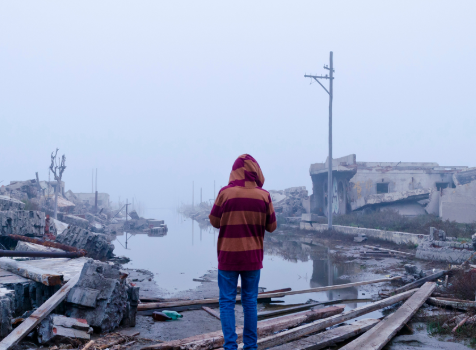
As unpredictable as they may be, natural disasters like wildfires, floods, and hurricanes are becoming more common across Canada. While we hope that the extreme weather will subside as the seasons change, the reality is that we must be prepared for such events. No one ever expects to be affected by a disaster, but knowing how to cope financially, emotionally, and practically is crucial for getting through these difficult times.
1. Prioritize Your Safety and Well-being
When disaster strikes, your first priority should always be your safety and that of your loved ones. If you receive an evacuation order or find yourself at risk, immediately follow local and provincial guidelines. Pay attention to evacuation orders and other alerts to ensure you are staying informed about changing conditions. Remember, your health and safety matter more than any financial concern, so focus on getting to a safe location.
If you have the time and opportunity, pack essential items such as personal documents, medications, pet supplies, and a few days’ worth of clothes. If evacuation becomes urgent, do your best to bring along important documents, including identification and any financial records that could help you recover later. If possible, store digital copies of important documents in a secure cloud account or email them to yourself for safekeeping.
2. Take Advantage of Emergency Assistance
Once you are in a safe place, register for emergency support services if available. Many organizations, such as the Red Cross, local governments, or community relief efforts, offer help in the form of shelter, food, and essential supplies for those who have lost everything. These services can provide temporary relief during the most difficult moments, allowing you to focus on recovering.
In addition to basic needs, be aware that certain government programs and nonprofit organizations may offer financial assistance for things like replacing household items or covering emergency expenses.
3. Acknowledge the Emotional Impact
It’s normal to experience a range of emotions after a natural disaster, from stress and grief to feelings of uncertainty. If you’re struggling with anxiety or have lost contact with loved ones, seek support from mental health professionals or counselors at an evacuation center. Many communities offer free counseling services to help you manage emotional distress during these trying times.
In addition, establishing a daily routine can help restore a sense of control. Maintaining regular sleep, meals, and self-care routines will help keep your mind and body in better condition as you work through the crisis.
4. Protect Your Financial Health
While your primary focus should be on your immediate needs, it’s also essential to keep an eye on your finances, especially in the aftermath of a disaster. If you’ve been displaced and can’t return to your home immediately, contact your creditors, banks, or insurance providers to let them know your situation. Many companies will offer grace periods or defer payments, so don’t hesitate to ask for help.
If you’re receiving financial aid, ensure that you’re aware of the available resources and how to access them. Make sure to track your spending closely during this time, as unexpected expenses are common, and it’s easy for finances to get out of control.
5. Help Others and Stay Connected
Even in the midst of hardship, helping others can lift your spirits. Look for opportunities to volunteer or donate where your assistance is most needed. However, be cautious with donations—only give what is requested and ensure it’s useful. For example, donations of clothing, food, or household items should be carefully curated to avoid contributing to a logistical burden. If you are able to, offer to help evacuees by providing temporary shelter or offering space for their pets and belongings. Such acts of kindness can make a big difference in helping others feel secure during a crisis.
6. Plan for Future Disasters
Though it may feel overwhelming to think about future crises during an ongoing disaster, it’s important to prepare for the unexpected. This could involve creating an emergency plan for your family, securing important documents, and ensuring that your home is as disaster-resistant as possible. While some events are unavoidable, being prepared can help reduce the financial and emotional toll of a disaster.
7. Seek Professional Guidance
In the aftermath of a natural disaster, financial recovery may be a slow process. If you’re struggling to manage the financial fallout or aren’t sure how to navigate insurance claims or government assistance programs, consider seeking guidance from financial professionals. Many organizations, including credit counseling services, offer free consultations to help you understand your options and create a plan for recovery.
Conclusion
Dealing with the effects of a natural disaster is never easy, but by prioritizing your safety, managing your finances wisely, and reaching out for support when needed, you can better cope with the challenges that come your way. Remember, no matter how overwhelming the situation may seem, there are resources and people available to help you recover and rebuild. Stay focused, seek assistance, and take things one step at a time as you work through the aftermath of a disaster.









